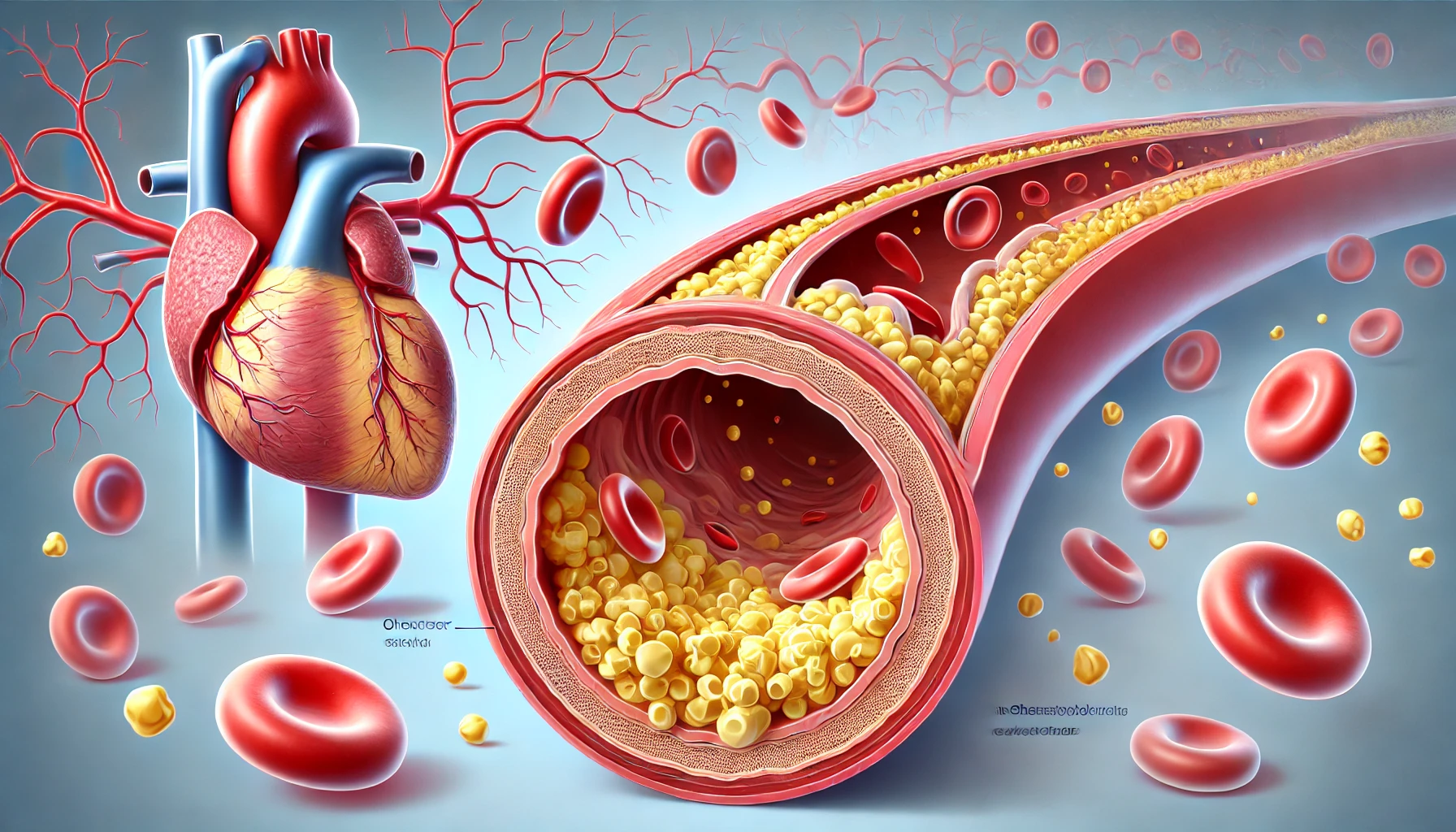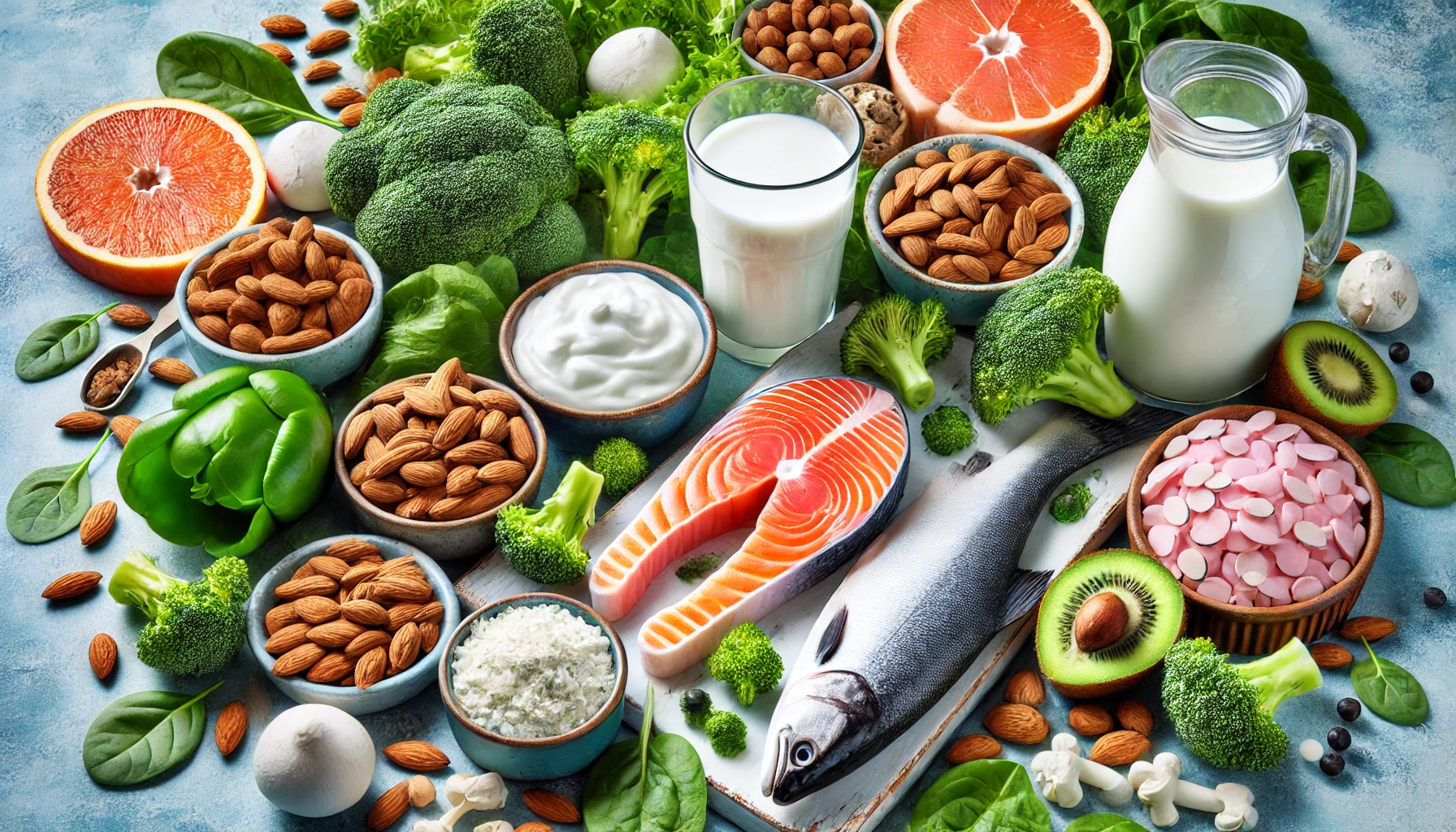
Important Points:
- Explore 15 nutrient-rich foods that support bone health and combat osteoporosis.
- Understand the key nutrients required for strong bones, including calcium, vitamin D, and magnesium.
- Practical tips for incorporating these foods into your daily diet for long-term benefits.
Why Nutrition is Key for Preventing and Managing Osteoporosis
Osteoporosis is a condition where bones become brittle and weak due to low bone density. While medical treatments play a role in managing the condition, a well-balanced diet rich in bone-strengthening nutrients is equally vital. Nutrients like calcium, vitamin D, magnesium, and protein help maintain bone strength and reduce the risk of fractures. Including these foods in your diet can significantly improve bone health and overall well-being.
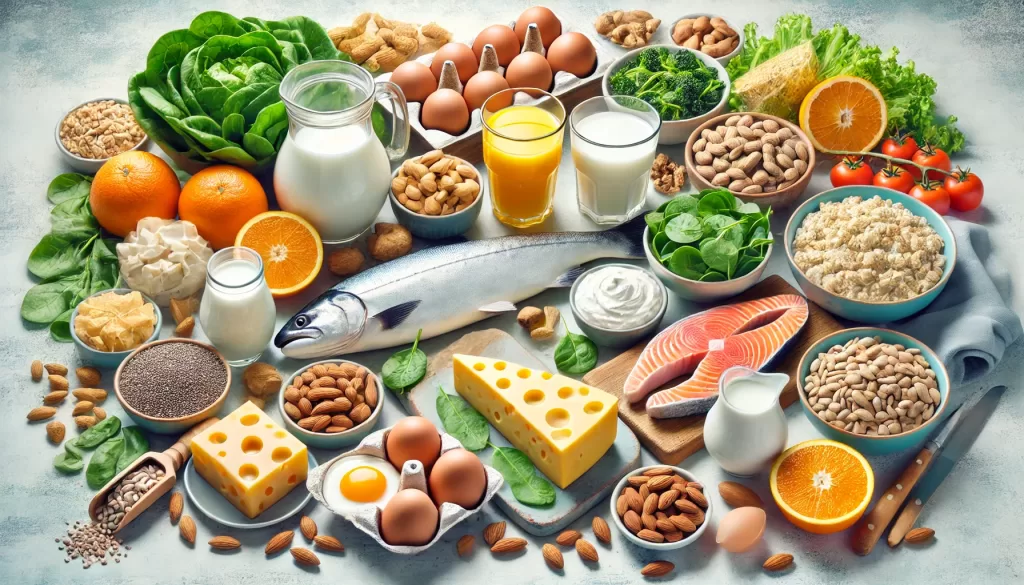
Top 15 Foods to Strengthen Your Bones and Combat Osteoporosis
15 Best Foods for Osteoporosis
Here’s a list of the best foods to boost bone strength and combat osteoporosis:
1. Dairy Products: Milk, Yogurt, and Cheese
Dairy products are among the richest sources of calcium, the primary mineral for bone health. They are also fortified with vitamin D, which enhances calcium absorption.
- Benefits: Builds and maintains bone density.
- How to Include: Add milk to smoothies, enjoy yogurt with fresh fruit, or snack on a small piece of cheese.
2. Leafy Green Vegetables: Kale, Spinach, and Collard Greens
Leafy greens are packed with calcium, magnesium, and vitamin K—nutrients essential for strong bones.
- Benefits: Vitamin K supports bone mineralization, while magnesium aids in calcium absorption.
- How to Include: Use greens in salads, smoothies, or as a side dish.
3. Fatty Fish: Salmon, Mackerel, and Sardines
Fatty fish are an excellent source of vitamin D and omega-3 fatty acids, which reduce bone inflammation and promote calcium absorption.
- Benefits: Omega-3s support bone turnover and reduce the risk of bone loss.
- How to Include: Grill salmon for dinner or add canned sardines to salads.
4. Eggs
Egg yolks contain vitamin D, making them a simple and affordable addition to a bone-healthy diet.
- Benefits: Provides a natural source of vitamin D for improved calcium absorption.
- How to Include: Enjoy boiled eggs, omelets, or scrambled eggs for breakfast.
5. Nuts and Seeds: Almonds, Walnuts, and Chia Seeds
Nuts and seeds are rich in magnesium, phosphorus, and omega-3 fatty acids, all of which are crucial for bone health.
- Benefits: Magnesium plays a vital role in converting vitamin D into its active form.
- How to Include: Snack on a handful of almonds or sprinkle chia seeds into yogurt or oatmeal.
6. Fortified Foods: Cereals, Orange Juice, and Plant-Based Milks
Fortified foods are enhanced with calcium and vitamin D, making them excellent choices for those with dietary restrictions.
- Benefits: Helps individuals who are lactose intolerant meet their nutrient needs.
- How to Include: Choose fortified cereals for breakfast or drink calcium-fortified orange juice.
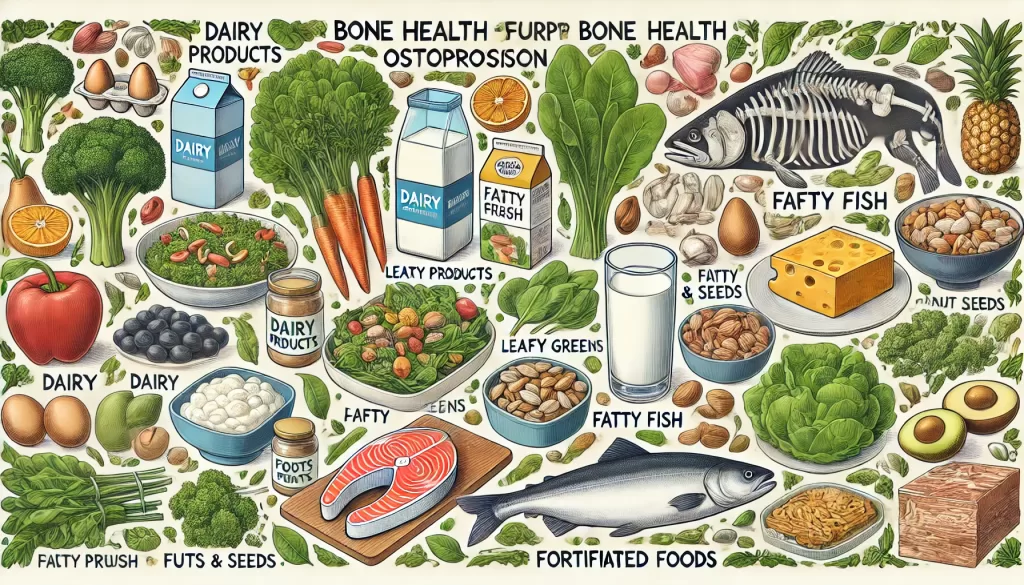
Top 15 Foods to Strengthen Your Bones and Combat Osteoporosis
7. Legumes: Lentils, Chickpeas, and Black Beans
Legumes are high in calcium, magnesium, and protein, making them a powerhouse for bone health.
- Benefits: Protein supports bone repair and regeneration.
- How to Include: Add beans to soups, salads, or stews.
8. Broccoli
Broccoli is a rich source of calcium and vitamin K, which are essential for maintaining bone strength.
- Benefits: Vitamin K improves bone density and reduces fracture risk.
- How to Include: Steam broccoli as a side dish or add it to stir-fries.
9. Sweet Potatoes
Sweet potatoes are packed with magnesium and potassium, which help maintain a healthy bone structure.
- Benefits: Potassium neutralizes acid in the body that can deplete calcium from bones.
- How to Include: Bake sweet potatoes or use them in soups and casseroles.
10. Tofu and Tempeh
Soy-based products like tofu and tempeh are high in calcium and isoflavones, which mimic estrogen to protect bone health in postmenopausal women.
- Benefits: Isoflavones reduce the risk of bone loss.
- How to Include: Use tofu in stir-fries or add tempeh to salads.
11. Berries: Blueberries, Strawberries, and Raspberries
Berries are rich in antioxidants that protect bone cells from damage.
- Benefits: Antioxidants reduce oxidative stress, a factor in bone loss.
- How to Include: Add berries to smoothies, cereals, or yogurt.
12. Mushrooms
Certain mushrooms, such as maitake and portobello, are natural sources of vitamin D.
- Benefits: Boosts calcium absorption and bone health.
- How to Include: Grill mushrooms or use them in soups and pasta dishes.
13. Whole Grains: Oats, Quinoa, and Barley
Whole grains are rich in magnesium, which helps maintain bone density.
- Benefits: Magnesium works alongside calcium for optimal bone health.
- How to Include: Use whole grains as a base for salads or side dishes.

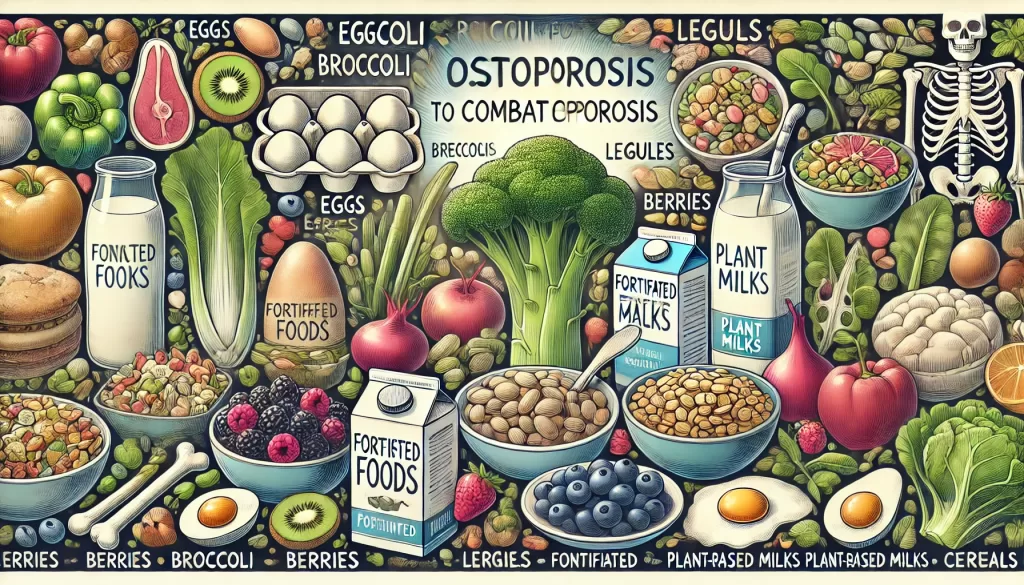
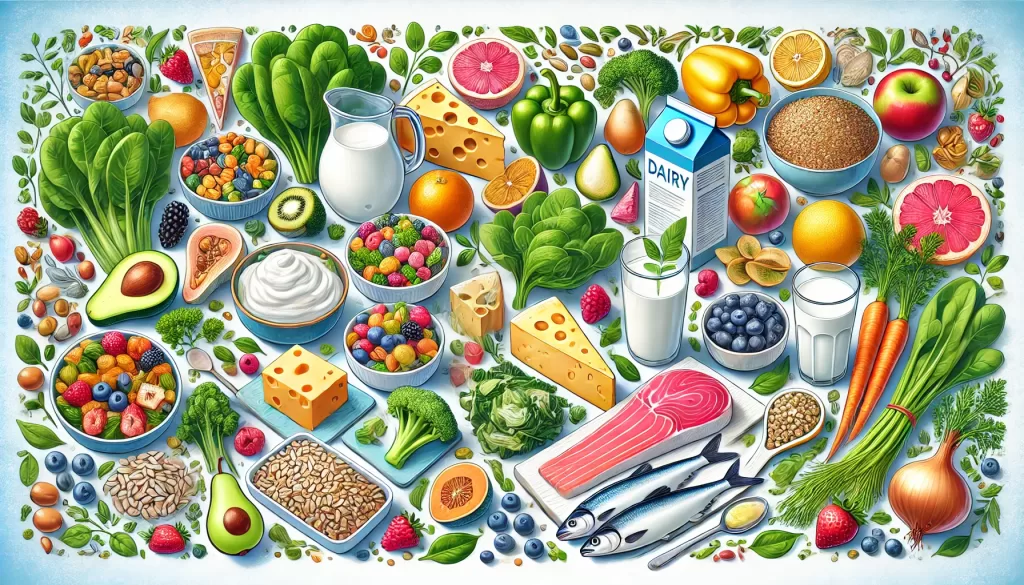






 Previous Post
Previous Post Next Post
Next Post
